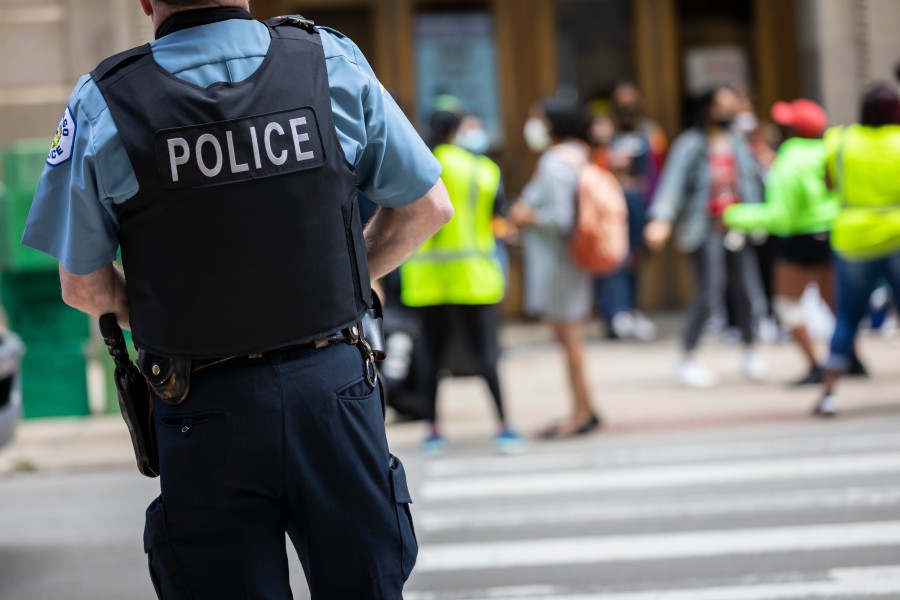WBEZ | “More Police Voted Out Of Chicago Schools — But They Remain In Mostly Black Schools”
Come fall, about two-thirds of Black students in traditional high schools will still see a regular police presence.By Sarah KarpWednesday, July 21, 9:35 p.m. CT URL Copied!

In the wake of calls to defund police, a new wave of Chicago public high schools voted this summer to remove officers from their buildings and replace them with counseling, mediation and other programs. But a stark racial divide remains between schools — those with mostly Black students are holding onto their officers far more often than schools serving other students.
This summer, seven schools voted to remove both of its assigned police officers and 24 decided to remove one of two, according to a Chicago Public Schools tally updated this week. Last summer, 17 voted to remove both officers.
This is leading to dramatic change: Two years ago, more than 90% of the city’s traditional 84 public high schools had police officers. This fall, it will be about half. One charter school also has an officer through the district’s police-in-school’s program.
“We are making progress,” said Jasmine Roach, a student leader with Voices of Youth in Chicago Education, a group that has been advocating to remove police from schools. “While it’s been a long time coming, I am glad to see that the voices of students are taken seriously and how we are coming together with parents, Local School Councils and other students to change school safety.”
However, the schools keeping one or both officers tend to serve mostly Black students. Come fall, about two-thirds of Black students in traditional high schools will still see a regular police presence, according to a WBEZ analysis of CPS data. Less than a third of Latino, white and Asian students will have an officer in their schools.
Alternatives to police
This year, elected local school councils that voted on the police question were given an incentive to remove police. They were offered at least $50,000 per officer they gave up and asked to draft comprehensive school safety plans that offered alternatives to police.
Activists are celebrating this shift toward funding more holistic approaches to discipline, rather than relying on policing, which they say criminalizes students.
That’s something youth organizer Meyiya Coleman always wanted when she was a student at Austin High School on the West Side. At the time, she pushed for more mental health services, rather than cops. Now, she said she’s finally seeing some change.
“We are getting those holistic approaches to safety and making sure we focus on mental and behavioral health,” Coleman said. “So I’m just blessed to be a part of the change.”
Schurz High School on the Northwest Side is one of the schools that voted to remove both its officers. Steven Rosado, who serves on the Local School Council, said he thinks people are starting to realize that students are not safer just because there is a police officer in the building.
“The conversation about [police in schools] is always about the worst case scenario,” he said. “That is allowing fear to grip the conversation. We are starting to explore other ways to make students feel safe without a uniform and a badge.”
Rosado said Schurz’s school safety plan calls for bolstering behavior intervention teams, who monitor student behavior and try to step in before problems arise.
“Every behavioral health team in CPS is stretched beyond capacity,” Rosado said. “So just anything that can be done to help meet students’ needs and support them” is important.
Lake View High School on the North Side also voted to get rid of its two officers. After students told the administration that bullying was their biggest concern, they decided to use their money to train teachers in something called courageous conversations, said Dan Bender, a teacher who serves on the council.
“It was determined that the main threat to students is bullying and we wanted to address the main threat and an armed officer doesn’t really do that,” Bender said.
Read the full story here!


